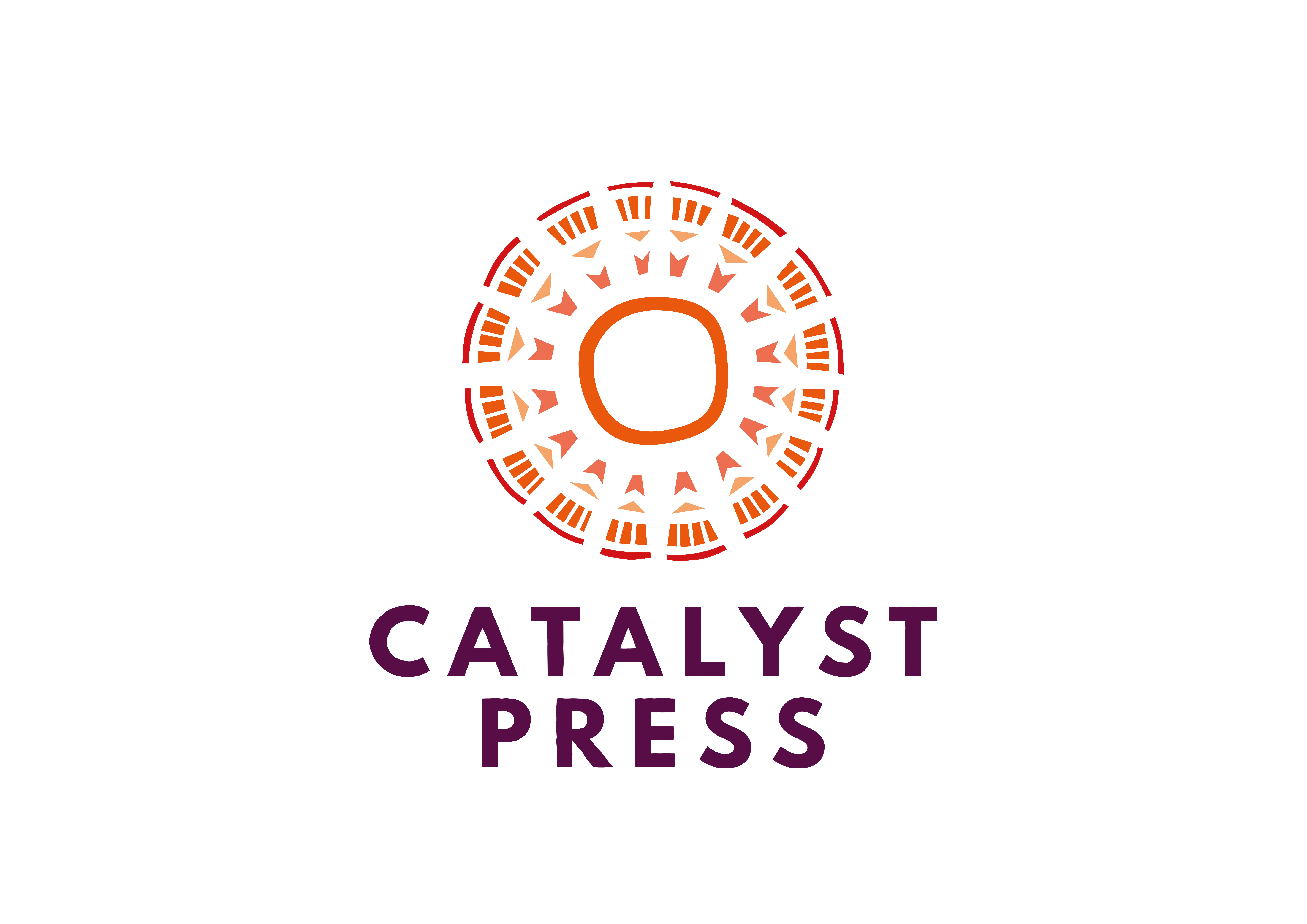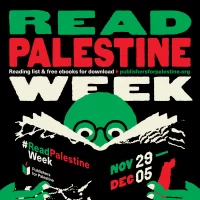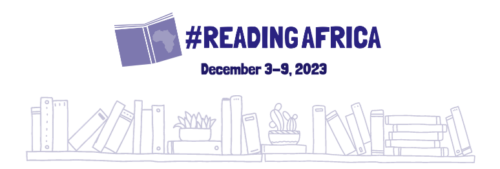It’s rare that two weeks centered on powerful writing from outside of the US happen at the same time. But this is one of those times. From November 29 – December 5, Publishers for Palestine hosts #ReadPalestine Week, encouraging “people around the world to read fiction and poetry by Palestinian and Palestinian diaspora authors, as well as nonfiction about Palestinian history, politics, arts, culture, and life, as well as books about organizing, resistance, and solidarity for a Free Palestine.”
Though we don’t specifically publish Palestinian authors (at least not yet), as a publisher who works with writers who have often been displaced, had history and war constantly shifting the ground beneath them, we understand the motivation. These writers, despite it all, still reach for words, still need to tell their stories. We wanted to do what we could to both participate and acknowledge the work of the #ReadPalestine Week organizers.
In 2012, Catalyst founder and author, Jessica Powers compiled and edited an anthology called That Mad Game: Growing Up in A Warzone. First published through Cinco Puntos Press and now available through Lee & Low Books, the book features seventeen essays from writers across the world, each examining the impact of war on children.
From Jessica’s introduction:
Until very recently, the world has paid scant attention to what happens to children in war. In 1996, Graça Machel—former first lady of Mozambique and current wife of Nelson Mandela—released a joint U.N./UNICEF report, “The Impact of Armed Conflict on Children.” The Machel report noted that war tactics in the last half century had been transformed: armed conflict today is fluid and fragmented and increasingly brought into the core of civilian life. The new parameters of war (which suggest that, in this game, all bets are off) include the proliferation of armed groups within nations; wars where the state is not always a participant; wars fueled by greed over resources like diamonds or water or drugs; acts of terrorism aimed at children; the use of children as perpetrators or suicide bombers; and the recruitment of children as soldiers.
Machel’s report highlighted the vulnerability of children and provided a moral and philosophical foundation for the U.N. to act on behalf of children caught in the midst of conflict. In the western world, we tend to think of childhood as a protected state—an idyllic time when children can play, go to school and enjoy life without being burdened with the cares of the adult world. One assumption behind this idea is that children should grow up in a safe and stable environment. Yet considering the daily realities of children worldwide, safety and stability are not the norm. Charles London—author of One Day the Soldiers Came: Voices of Children in War—points out that there have been 14,000 wars in the last 5,600 years, and at least 160 wars since. Children are far more likely to experience war at some point during their childhood than they are to grow up without it. Currently, approximately one billion children under the age of eighteen are growing up in regions affected by conflict. In fact, even in the U.S., many children are growing up in neighborhoods affected by so much gang violence that they are essentially growing up in a war zone.
[…]
Though the essays collected here do not offer a didactic solution to the problems children and teenagers encounter in war, they do present a range of consequences—enduring a post-traumatic stress disorder (PTSD), losing parents and other family members, becoming a refugee, walking across a continent to find a safe place, being wounded, living in exile. Most of all, the stories show loss, anger, fear, heartbreak and forgiveness.
Despite the many differences in wartime experiences and geographic locations that the essays in this collection cover, there is one recurring theme that appears in almost all of these stories: the inevitability of exile during war. No matter whether children fight as soldiers, become victims of violence or flee war as refugees, their universal experience of war seems to be exile, being pushed out and away, no longer a part of that which they have known: exile from their homeland, culture, family, home and—most significantly—their remembered self.
With that in mind, we’d like to offer excerpts of two of the essays in the book, one for #ReadPalestine Week, and one for #ReadingAfrica Week. The first, “My War and His War” by Alia Yunis whose essay “confronts what the war in Palestine has done to a ten-year-old boy named Mutassem; understanding his painful experience sends her back in time to her own memories of being a child and then a teenager in besieged Beirut.”
And “Half a Continent, Step by Step” by Andie Miller, which focuses on a Rwandan child named Innocent who at “thirteen years old, started to walk to escape the violence. Several years and thousands of miles later, he was still walking to escape wars that he encountered in virtually every nation he wandered through.”
Both of these essays, and both #ReadPalestine and #ReadingAfrica shine a light on our commonalities, our struggles, but also our need to be seen and heard, to find safety, and as Jessica puts it, to find our remembered self.
Many thanks to both Cinco Puntos Press and Lee & Low Books.




